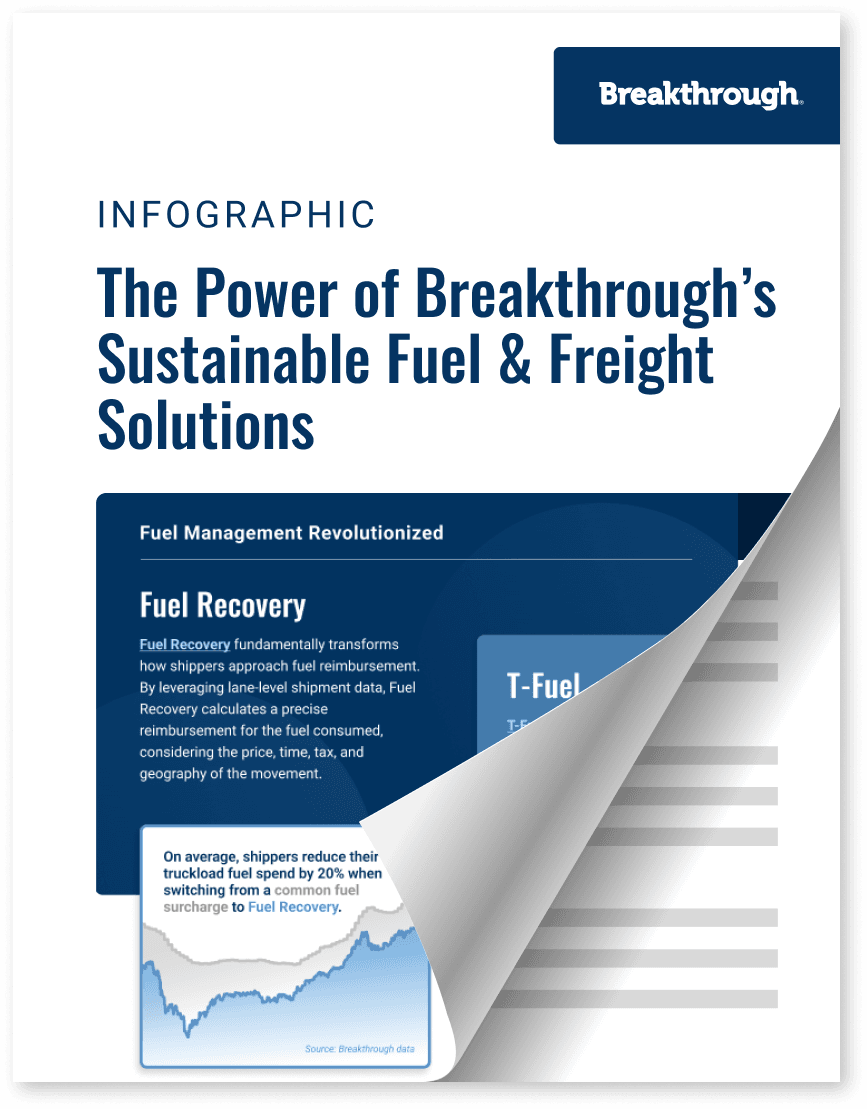The Power of Breakthrough's Sustainable Fuel and Freight Solutions

Freight
3 min read
July 17, 2024
Market Events
4 min read
July 16, 2024
Market Events
3 min read
July 8, 2024

5 min read
April 20, 2020

Share:
Weekend oil market headlines were consumed by more bearish sentiment. West Texas Intermediate (WTI) oil prices plunged to negative territory for the first time ever on April 20 as available storage capacity dwindles from the COVID-19 demand shock. Diesel prices, however, showed more of a mild decrease of about $0.07 per gallon. The diesel market has been supported by unique supply and demand fundamentals that expose key discrepancies between the two commodities.
It is important to note that part of the drastic WTI price slide was tied to the weaker trading volume from the expiration of the May futures contract on April 21. June WTI contract prices—which are more indicative of true market moves—only decreased $4-5 per barrel and remained above $20 per barrel. Nonetheless, front-month oil prices fell below $0 to help traders offset storage and transportation costs of their impending oil receipts in the final days of trading May contracts.

COVID-19 containment measures have drastically reduced the need for many transportation fuels and, therefore, the oil needed to make them. U.S. oil inventories have increased each week since late January and are currently about 6 percent above the five-year average. These builds will likely continue until production restraints kick in and naturally deplete stockpiles. Domestic oil production has already declined as producers attempt to tighten the market. These operational adjustments have yet to impact inventories since refiners are buying less oil and international demand continues to weaken.
The lack of refined products’ demand from travel restrictions has forced refiners in the U.S. and around the world to scale down operations. U.S. refinery utilization recently fell to the lowest level since 2008. This has helped diesel price volatility pale in comparison to that seen in the oil market.

Diesel commodity price premiums over crude oil (i.e. crack spreads) remain robust relative to other refined products because the commercial transportation sector has propped up consumption. Considerably lower refinery run rates have also stopped a major diesel supply glut, ultimately preventing the diesel market from absorbing the same price turbulence experienced in crude oil. Current wholesale diesel prices of about $1.60 per gallon are still the lowest since January 2016 but have avoided major additional decreases due to supply-demand dynamics specific to diesel fuel.
We expect the behavioral disconnect between crude oil and diesel to continue under current market conditions. Diesel prices will likely hold stable based on demand persistence and measures taken at the refinery level. Oil price behavior will be dependent on more aggressive production restraints, especially since the record production cuts agreed upon last week by OPEC+ and certain G20 nations have failed to support prices. COVID-19’s lifespan and its demand implications will be a factor for the foreseeable future.
Shippers rushed products to store shelves in March just as quickly as the products were being bought as consumers stockpiled essential household goods. This ultimately forced shippers to focus on service over cost in order to meet market demands. Consequently, over-the-road movements took priority over intermodal.
Intermodal shipments of non-durable goods declined at a more rapid pace compared to truckload. The chart below highlights that non-durable goods shipment volume—consisting of consumer-packaged goods, food & beverage, paper & packaging, and retail industries—has experienced a year-over-year decline thus far in April.

Concurrently, non-durable goods demand for over-the-road truckload freight showed year-over-year gains during the surge. Even as non-durable volumes are slowing, truckload shipments have retained more year-over-year strength.

This practice of focusing on service over cost may be short-lived for some shippers as demand for all freight falls. Breakthrough believes freight demand could fall further for all industries as the U.S. heads into recessionary territory. Shippers are likely to adjust their strategies to focus on cost-savings initiatives while the economy struggles. This may reverse the scenario mentioned above and open the door for shippers to take advantage of intermodal capacity that has recently become available.

3 min read
July 17, 2024
Maximize transportation efficiency with cohesive fuel and freight strategies. Discover the power of enhanced visibility, cost-effectiveness, and sustainability.
Read more
4 min read
July 16, 2024
Discover how the recent elections in Mexico and the EU are expected to influence energy policies, fuel prices, and dynamics in the transportation sector.
Read more
3 min read
July 8, 2024
Understand the state-specific changes in diesel tax rates and explore strategic solutions for shippers to accurately calculate fuel reimbursements to carriers.
Read more